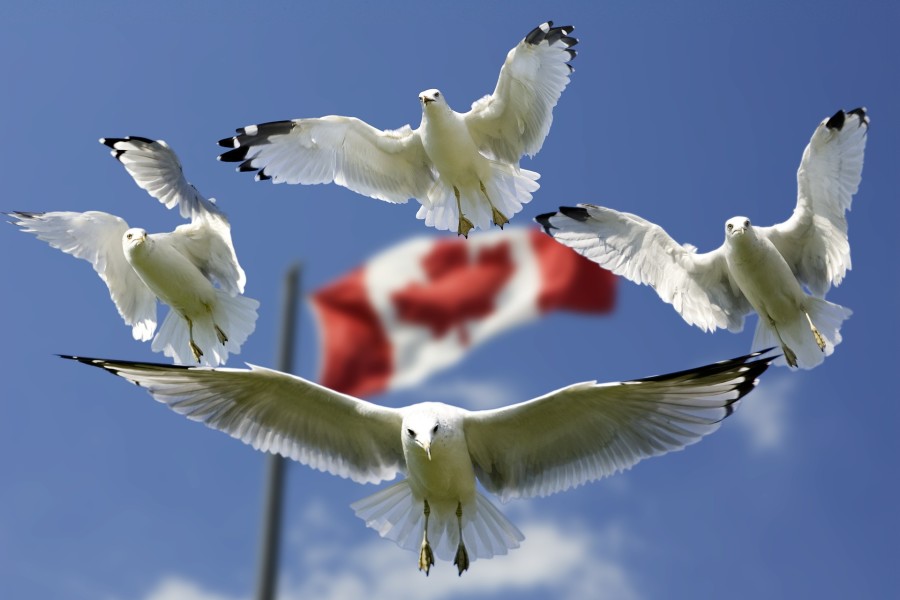Those most harmed by the government initiation of force which the supply management represents, are the Canadian consumers.
One of the sticking points in the trade agreement (NAFTA) negotiations between the United States, Canada and Mexico is the decades old Canadian chicken and dairy product “supply management” system. In essence, it is a government-imposed restriction on supply of poultry and dairy products to boost prices for farmers, which consumers are forced to pay.
This supply management system entails controlling the supply of products such as milk, butter, and cheese, determining their prices, and imposing punitive tariffs, ranging from 202% for milk to 298% for butter. See the article by Mark Milke explaining Canada’s supply management system, which he calls “Marxist economics applied to dairy cows.”
President Trump has complained that Canada’s supply management is “unfair” to American chicken and dairy producers as it renders American imports uncompetitive in Canada. The punitive tariffs—or any tariffs—do not fit into any free trade agreement as they interfere in the trading partners’ freedom to choose the terms (including prices) of their exchange. But while the tariffs prevent free trade between the American producers and Canadian buyers, at least they do not force the American farmers to trade with Canadians. They can choose to go to free (or freer) markets elsewhere.
Those most harmed by the government initiation of force which the supply management represents, are the Canadian consumers (for most of whom moving elsewhere is not feasible, given restrictions on immigration). They are forced to pay prices for chicken and dairy products that are on average 77% higher than what Americans pay. Foreign imports, to the extent they exist, are prohibitively expensive for many. Besides, the range of dairy and poultry products is much more limited in Canada than in the U.S. and elsewhere where freedom and competition spur innovation. The Canadians’ right to choose from products whose range and prices are determined by the market is violated by their government.
The argument for abolishing supply management is not merely economic. It is the violation of the individual rights of citizens to liberty and property that makes the Canadian government’s supply management wrong. By taking away Canadians’ freedom to choose with whom to trade and at what terms and forcing them to use a disproportionate amount of their income on basic foods (or to go without), diminishes their ability to flourish.
Why would the government want to violate its citizens’ rights in such a way? The benign explanation is that it operates by the statist idea that “government knows what is best for its citizens” and can therefore use force to make them conform to the government’s dictates—from which presumably everyone benefits.
But as I have argued, no-one benefits from the initiation of force, not even the force-wielding nanny state’s leaders, in the long term, as diminishing Canadians’ freedom and prosperity will eventually unseat the government (presuming that at least a portion of the voters is paying attention to their bad, and worsening, circumstances).
The real reason for the modern Canadian supply management system persisting for close to 50 years is not that it is in the interest of individual Canadians as the government claims, but the politicians’ unwillingness to dismantle the status quo and to face protests from the 12,000 or so farmers who benefit from the protection racket and form a powerful lobbying and voting bloc. (And this is despite good examples, such as that from Australia, of how such supply management systems can be dismantled, systematically over time, to give farmers time to adjust to real competition).
The government does not, and cannot, know what is best for individual citizens, nor is it capable of managing supply (therefore the quotation marks in “supply management”).
To act properly—to make flourishing of its citizens possible—the government and the citizens must recognize that human flourishing requires, first and foremost, freedom to think and act in sustenance of one’s life. That freedom—expressed in the principle of individual rights to life, liberty, property, and the pursuit of happiness—can only be violated by the initiation of physical force and fraud.
Therefore, it is the government’s role—its only role—not to initiate such physical force via “supply management” or any other schemes, but to protect citizens against such force by others. The only way to get such a government and not a nanny state, is for the citizens recognize this fact. Here’s hoping that Canadians, and people everywhere where governments violate their freedom, wake up and demand their individual rights, for better opportunities to flourish.




